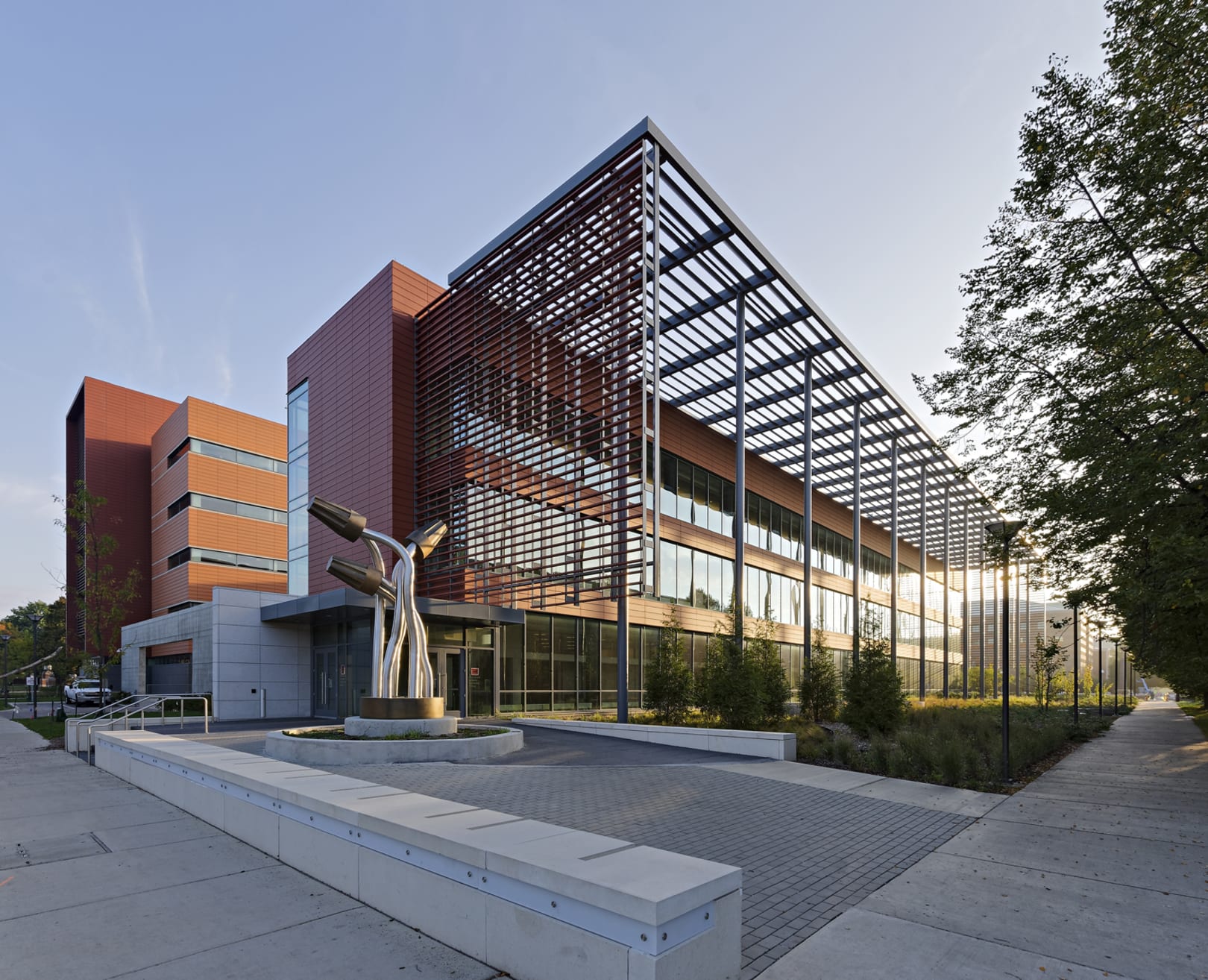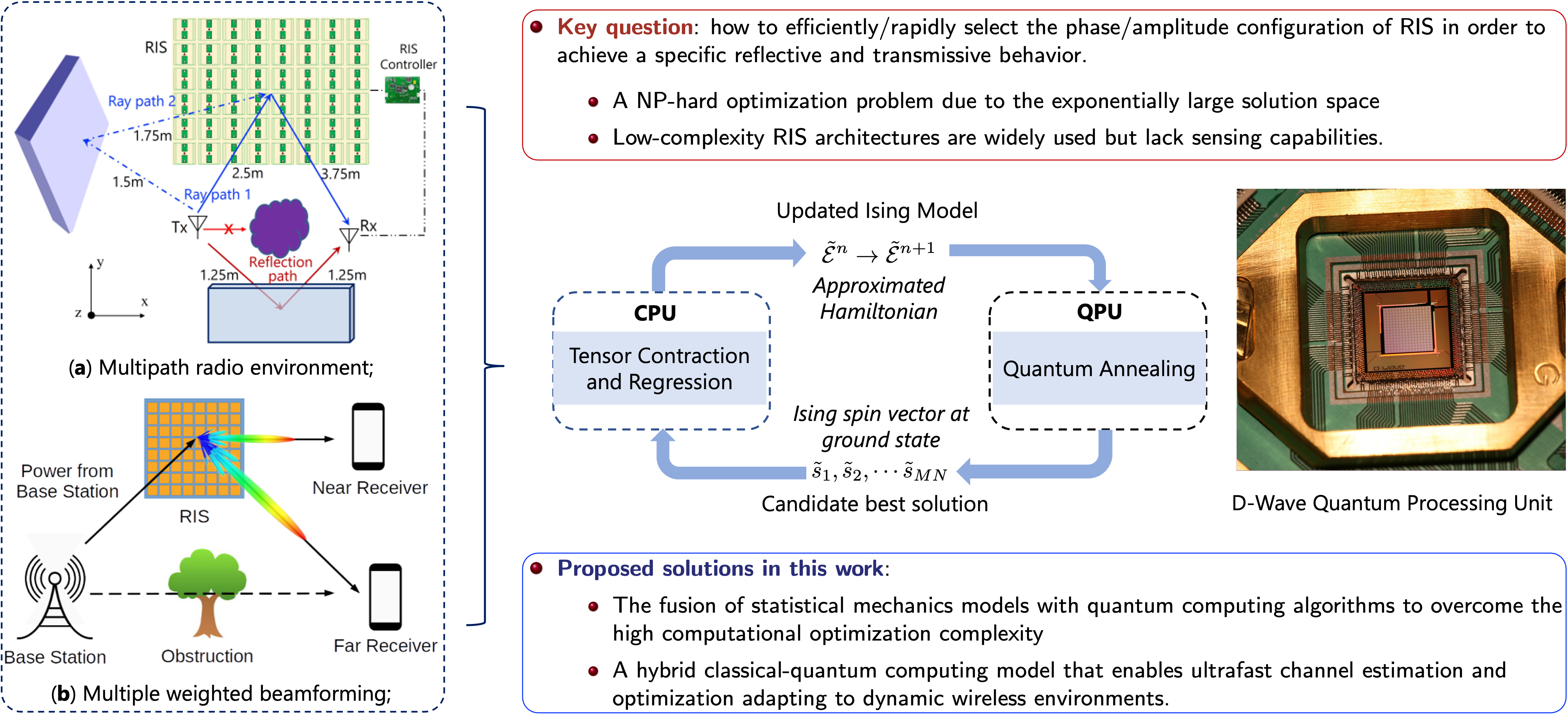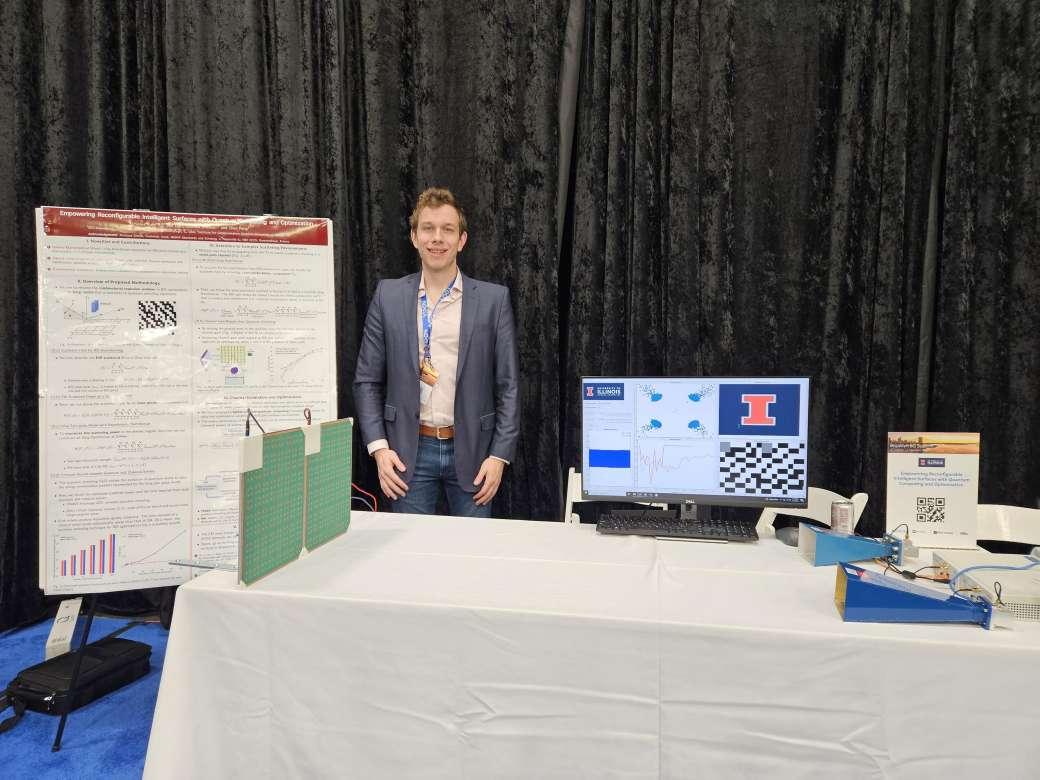About Us
Welcome to the Advanced and Applied Computational Electromagnetics (ACEM) Group, led by Prof. Zhen Peng at ECE Illinois, UIUC. Our core research centers on the pursuit of mathematical and computational models that enable the prediction and discovery of classical and quantum electrodynamic phenomena. These models empower the design and optimization of novel electromagnetic systems at unprecedented scales, and contribute through education to the advancement of understanding. Recent applications of our work include physical layer modeling and innovations in NextG Wireless, electrical analysis for heterogeneous integration, and intra-system EMI/EMC in complex electrical systems.
Group News
2025, Best EMC Symposium Paper Award (2nd Place)
We are honored to receive the Best EMC Symposium Paper Award (Honorable Mention) at the 2025 IEEE International Symposium on Electromagnetic Compatibility, Signal & Power Integrity (EMC+SIPI). This prestigious award recognizes the two most outstanding papers presented at the symposium.
The award-winning paper, titled “Efficient Statistical Analysis of EM Coupling to PCB Power Planes in Complex Enclosures,” was co-authored by Sangrui Luo, Shen Lin, Yang Shao, Thomas Antonsen, and Zhen Peng.

2025, IEEE AP-S Distinguished Lecture at City University of Hong Kong
Prof. Zhen Peng was honored to give an IEEE Antennas and Propagation Society Distinguished Lecture at the State Key Laboratory of Terahertz and Millimeter Waves, City University of Hong Kong. Many thanks to Prof. Alex Wong, Prof. Kwai Man Luk, and Dr. Ka Fai Chan for their warm hospitality and kind invitation. The lecture was titled: “Computational Electromagnetics: From Physics to Intelligence.”
2025, Finalist and Honorable Mention Awards in Student Paper Competition at IEEE AP-S/URSI Symposium
Congratulations to Gonzalo Nuñez Muñoz, who was selected as a Best Student Paper Finalist and received an Honorable Mention Award for the paper:
G. Nuñez Muñoz, S. Lin, and Z. Peng, “High-Performance GPU-Accelerated Time-Domain Analysis of Large High Quality-Factor Cavities on a Single Workstation.”
Congratulations also to Qi Jian Lim, who received an Honorable Mention Award for the paper:
Q. J. Lim and Z. Peng, “A Fast and Scalable Beamforming Algorithm for Wireless Power Transmission Using Time-Modulated Simulated Bifurcation.”
We are proud of their outstanding work and recognition at this premier international symposium.
2025, 2nd Place in Student Paper Competition at ACES Symposium
Congratulations to Ge Cao, who received the 2nd place in the student paper competition at the 2025 International Applied Computational Electromagnetics Society (ACES) Symposium.
The paper proposes Photon Splatting, a novel neural surrogate framework for real-time wireless propagation and 4D channel modeling in complex indoor environments. By combining spherical harmonics, wall-attached photon representations, and a Fourier Neural Operator-based encoder, the method enables accurate and scalable prediction of channel impulse responses for 6G digital twin applications.
The full paper can be found at: Cao, Ge, Gabriele Gradoni, and Zhen Peng. “Photon Splatting: A Physics-Guided Neural Surrogate for Real-Time Wireless Channel Prediction.” arXiv preprint arXiv:2507.04595(2025).

2025, Yuen T. Lo Outstanding Research Award at ECE Illinois
Congratulations to Mr. Sangrui L uo for receiving the prestigious Yuen T. Lo Outstanding Research Award at ECE Illinois. This award recognizes a graduate student who has demonstrated excellence in research in the area of Electromagnetics.
Sangrui’s research focuses on ad vancing statistical electromagnetic modeling and simulation, an area critical to understanding electromagnetic (EM) wave physics in complex confined systems. Sangrui is a recipient of Richard B. Schulz Award for the Best Transactions Paper in IEEE TEMC (2nd Place), Best EMC Symposium Paper Award (2nd Place), Best EMC Student Paper Semi-Finalist, and Best Student Paper Award Honorable Mention at APS/URSI.
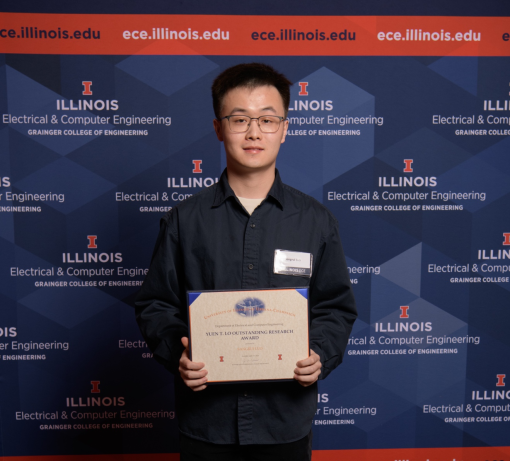
2025 Best Propagation Paper Award Finalist at EuCAP 2025
Our recent work, “Photon Splatting: Real-Time Neural Representation for Predicting 3D Indoor Radio Channels,” was selected as a finalist for the 2025 Best Propagation Paper Award at the European Conference on Antennas and Propagation (EuCAP 2025), held in Stockholm, Sweden.
The paper introduces a physics-inspired neural framework that models radio wave propagation by projecting photon interactions onto continuous spatial-temporal fields. We are excited to continue advancing this line of research at the intersection of wireless communications, electromagnetics, and computer graphics.
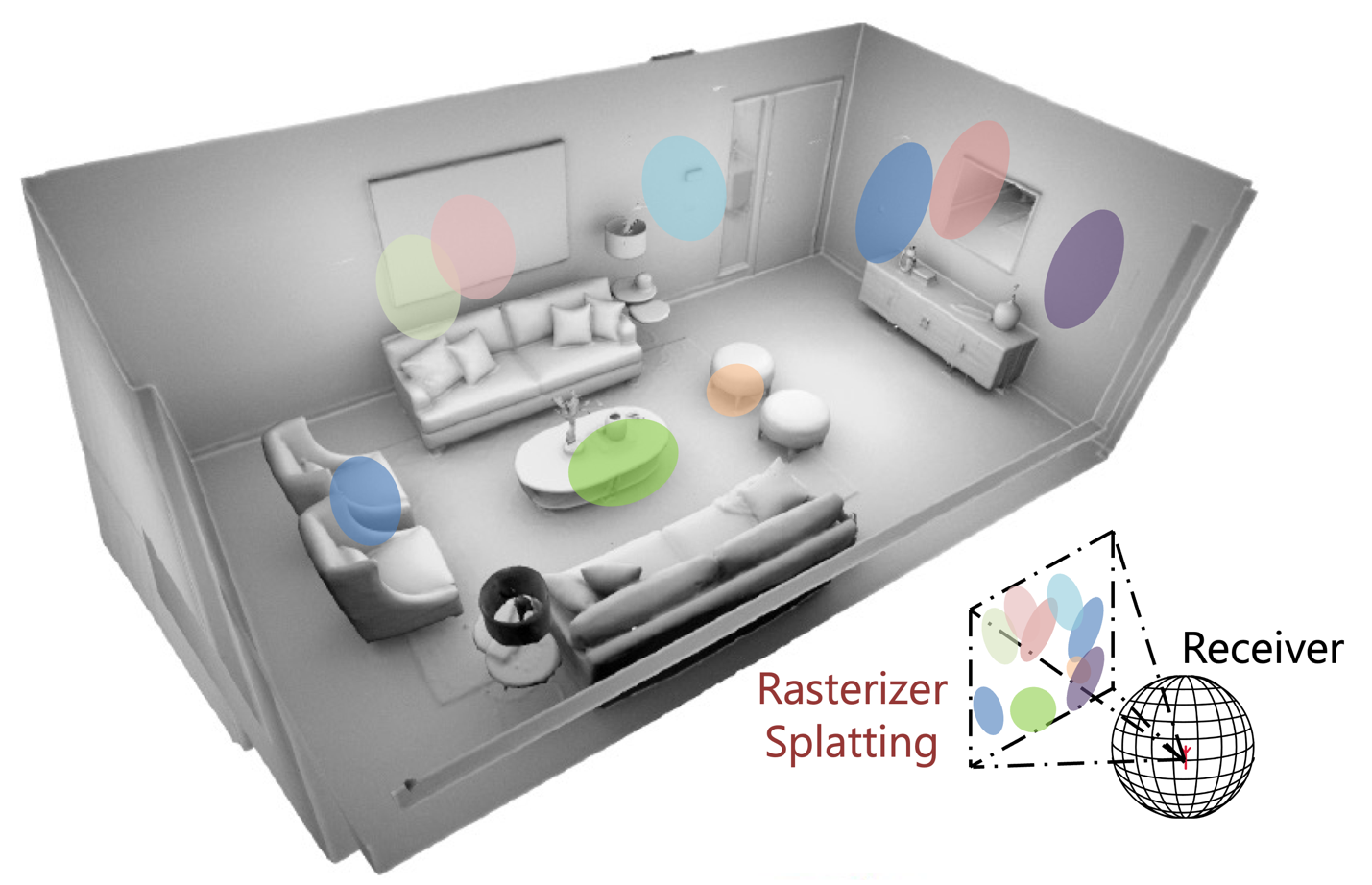
2025 Student Paper Award (3rd Place) at Marinaforum’25
Congratulations to Qi Jian Lim for receiving the Best Student Paper Award (Third Prize) at Marinaforum 2025 for the paper: “Quantum-Assisted Combinatorial Optimization for Reconfigurable Intelligent Surfaces in Smart Electromagnetic Environments.” The paper is co-authored with Charles Ross, Dr. Amitabha Ghosh, Dr. Frederick W. Vook, and Prof. Gabriele Gradoni. We gratefully acknowledge the support of NSF and Nokia in making this research possible.
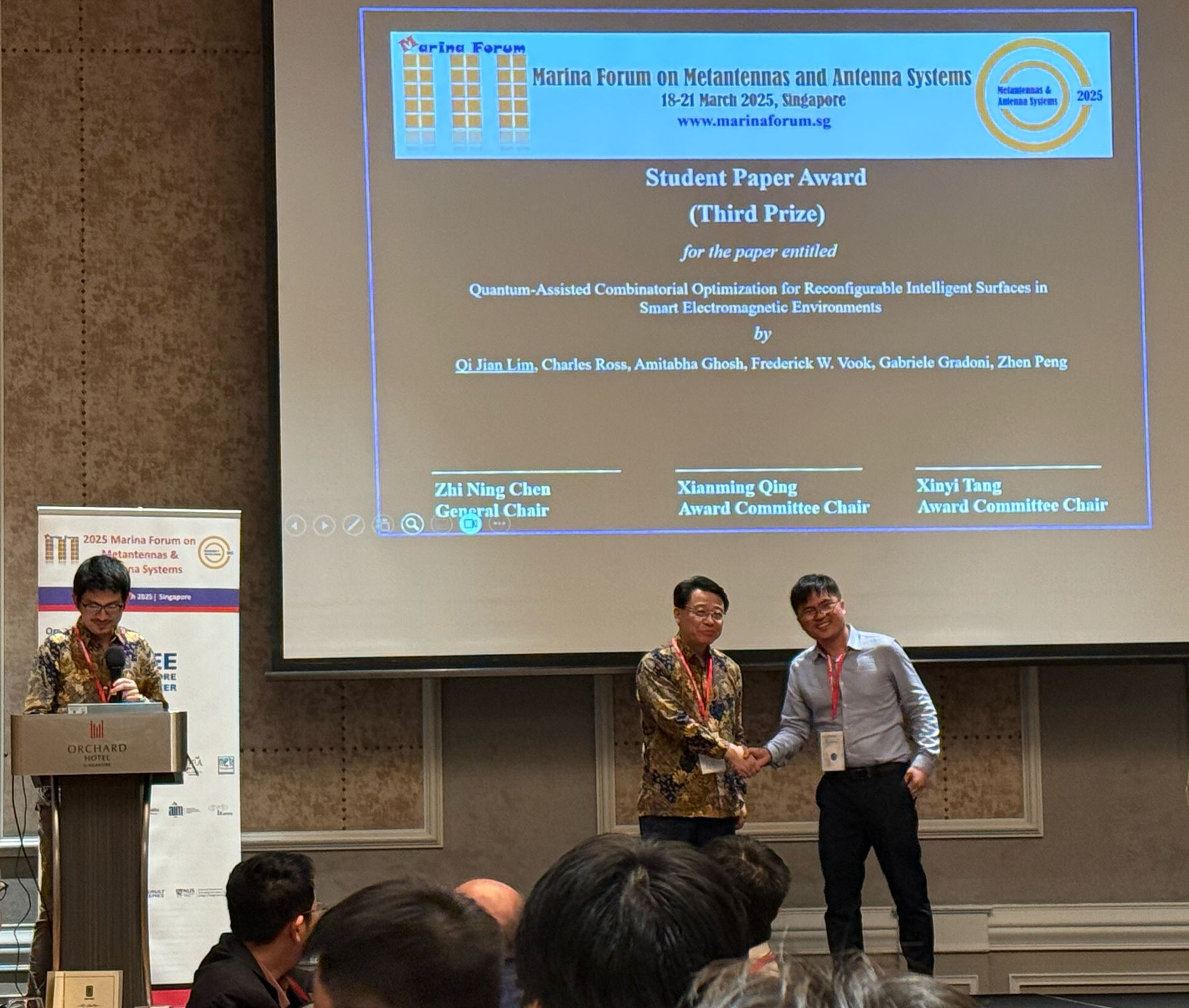
2025 Distinguished Lecture at Marinaforum’25
Prof. Zhen Peng was invited to give a Distinguished Lecture at Marinaforum 2025, titled: Empowering Smart Radio Environments with Quantum Computing and Machine Intelligence. Prof. Peng extends his gratitude to the IEEE APS Distinguished Lecturer Program, the organizing committee (Prof. Zhi Ning Chen, Dr. Xianming Qing, Dr. Terence Shie Ping SEE, Dr. En-Xiao Liu, Dr. Xinyi Tang), and Dr. Theng Huat Gan for their kind invitation and warm hospitality.
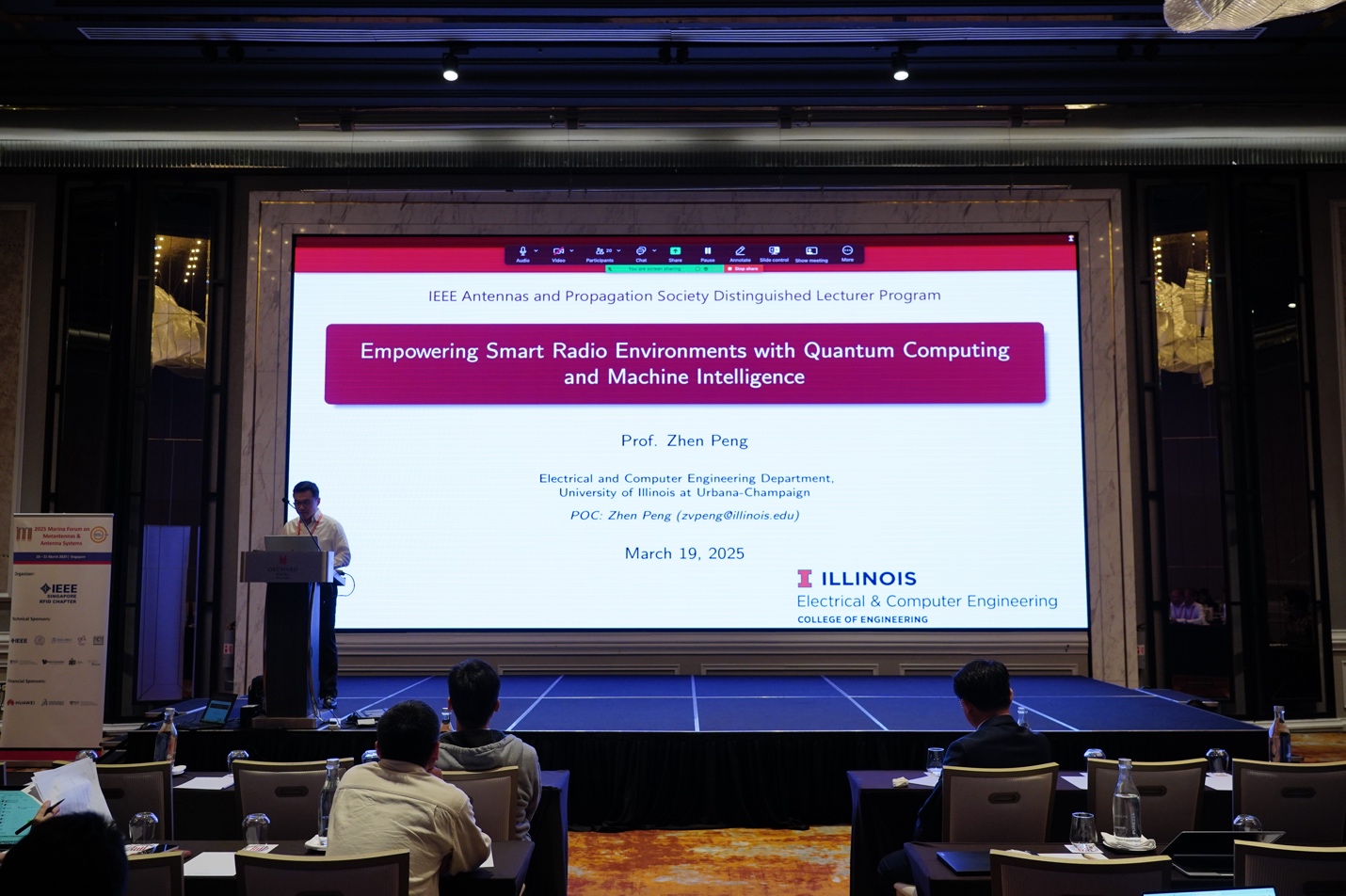
2024 Keynote Speaker at NEMO’2024
Prof. Zhen Peng was invited to give a Keynote talk at the IEEE MTT-S International Conference on Numerical Electromagnetic and Multiphysics Modeling and Optimization (NEMO’2024). The title of the talk is: Domain Decomposition Methodology for Solving Maxwell’s Equations at Scale. Prof. Peng extends his gratitude to the organizing committee (Prof. Roni Khazaka, Prof. Natalia Nikolova, and Prof. Zhizhang Chen) for this invitation.
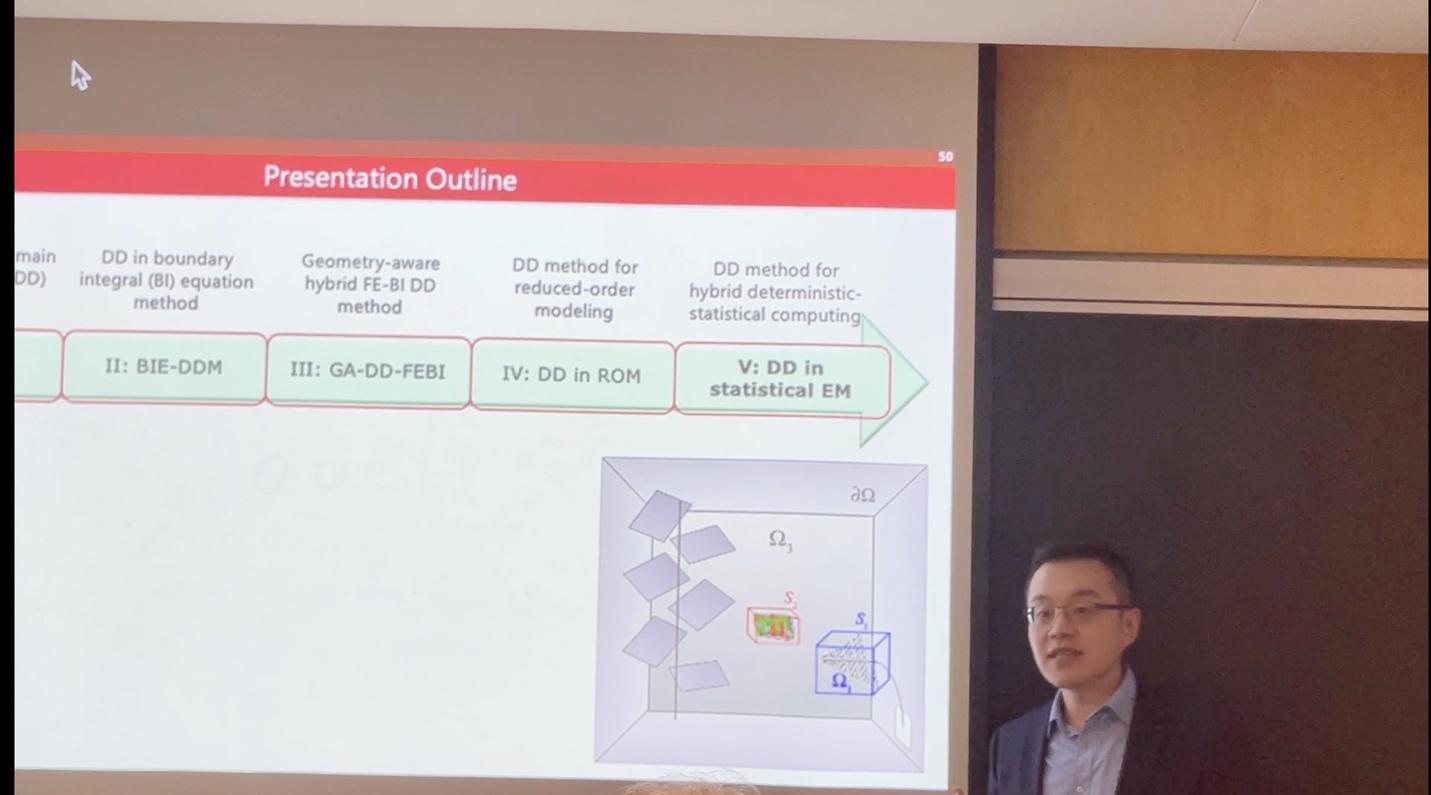
2024 Best EMC Symposium Paper Award (2nd Place)
We are honored to receive the Best EMC Symposium Paper Award (Honorable Mention) at the 2024 IEEE International Symposium on Electromagnetic Compatibility, Signal & Power Integrity (EMC+SIPI). This prestigious award recognizes the most outstanding papers presented at the IEEE EMC Symposium. Out of all the accepted papers at the 2024 symposium, two were selected for this recognition. Our paper was awarded Honorable Mention, which is equivalent to second place.
The award-winning paper, titled “Fusion of Parameterized and Physics-Oriented Statistical Surrogate Models for EM Coupling on Wires in Complex Electronic Enclosures,” was co-authored by Shen Lin, Sangrui Luo, Yang Shao, Bisrat Addissie, Zachary Drikas, and Zhen Peng.
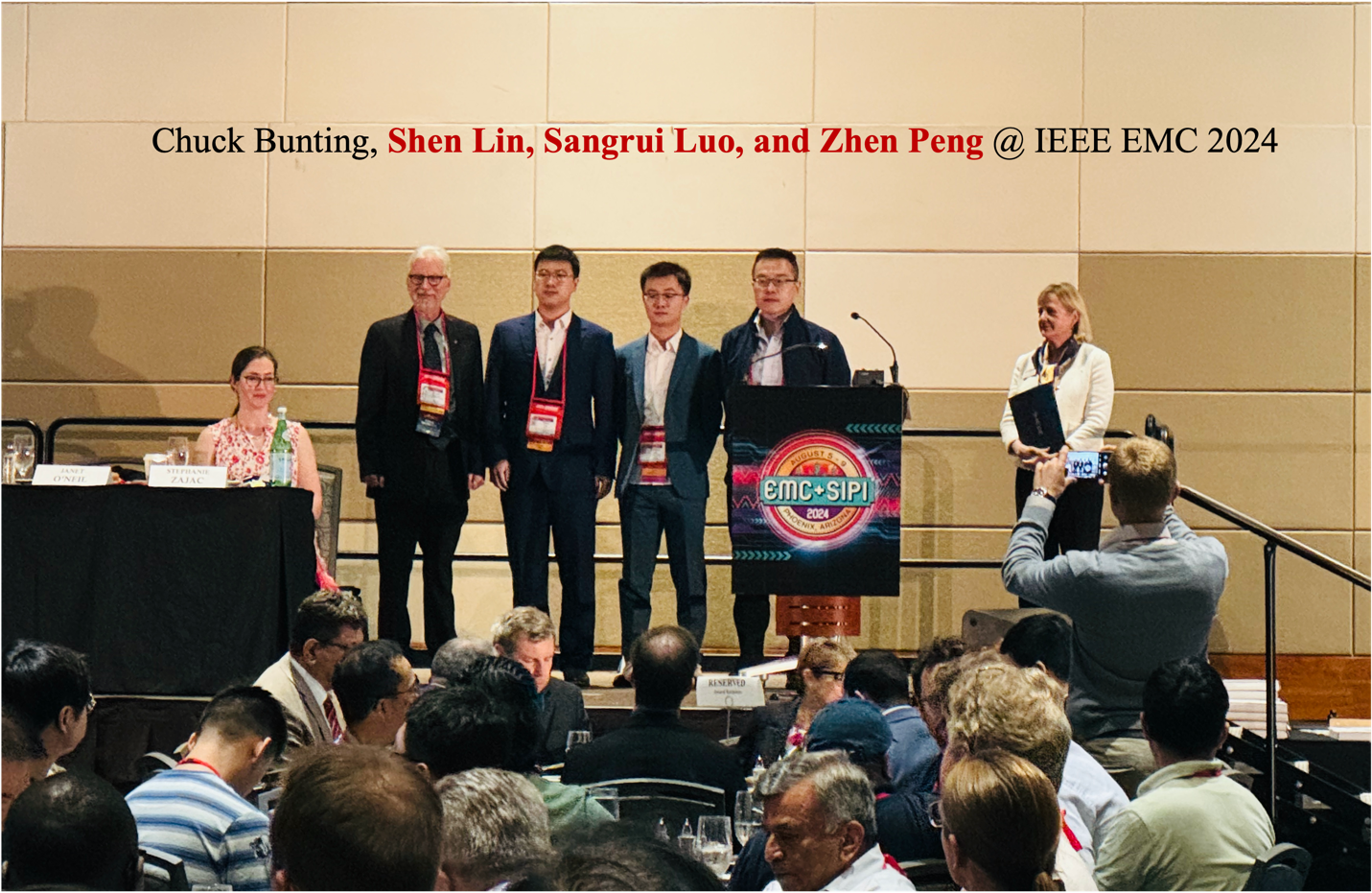
2024, GlobalEM Young Scientist Award
Dr. Shen Lin received the Young Scientist Award at the 2024 Global Electromagnetics Conference (GlobalEM 2024) for his outstanding research achievement in computational and statistical electromagnetics.
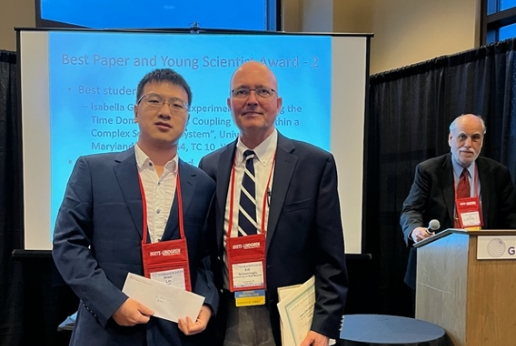
2024, Honorable Mention Award in Student Paper Competition at IEEE AP-S Symposium
Qi Jian Lim received the 2024 IEEE Antennas and Propagation Symposium Student Paper Competition Honorable Mention Award. The title of the paper is “Swarm-based Antenna Array Synthesis through Spin-based Bifurcation Algorithm”.
2024, Plenary Speaker at ACES
Prof. Zhen Peng delivered a plenary talk at the International Applied Computational Electromagnetics Society (ACES) Symposium. The title of the talk is: Taming Chaos into Order: Exploring Statistical Wave Analysis in Electromagnetics. Prof. Peng extends his gratitude to the organizing committee for this invitation.
2024, Richard B. Schulz Award for the Best Transactions Paper in IEEE TEMC (2nd Place)
Our paper, Predicting Statistical Wave Physics in Complex Enclosures: A Stochastic Dyadic Green’s Function Approach, received 2023 Richard B. Schulz Best Transactions Paper (Honorable Mention) at IEEE Transactions on Electromagnetic Compatibility (IEEE T-EMC).
The Richard B. Schulz Award recognizes the outstanding paper published in the IEEE T-EMC, with two papers selected each year: the Best Transaction Paper, and the Honorable Mention Transaction Paper (HMTP), which represents the second best Transaction paper.
This paper is selected from 208 papers published in 2023 IEEE T-EMC through a rigorous review and consideration of the editorial board. The award will be presented at the annual IEEE EMC+SIPI Symposium during the Awards Luncheon.
The work is in collaboration with Profs. Steven Anlage and Thomas Antonsen at University of Maryland, and Drs. Zachary Drikas and Bisrat Addissie at Naval Research Laboratories.
we extend our sincere appreciation to our sponsors from the National Science Foundation (NSF), the Office of Naval Research (ONR), and the Defense Advanced Research Projects Agency (DARPA) for their support and funding.
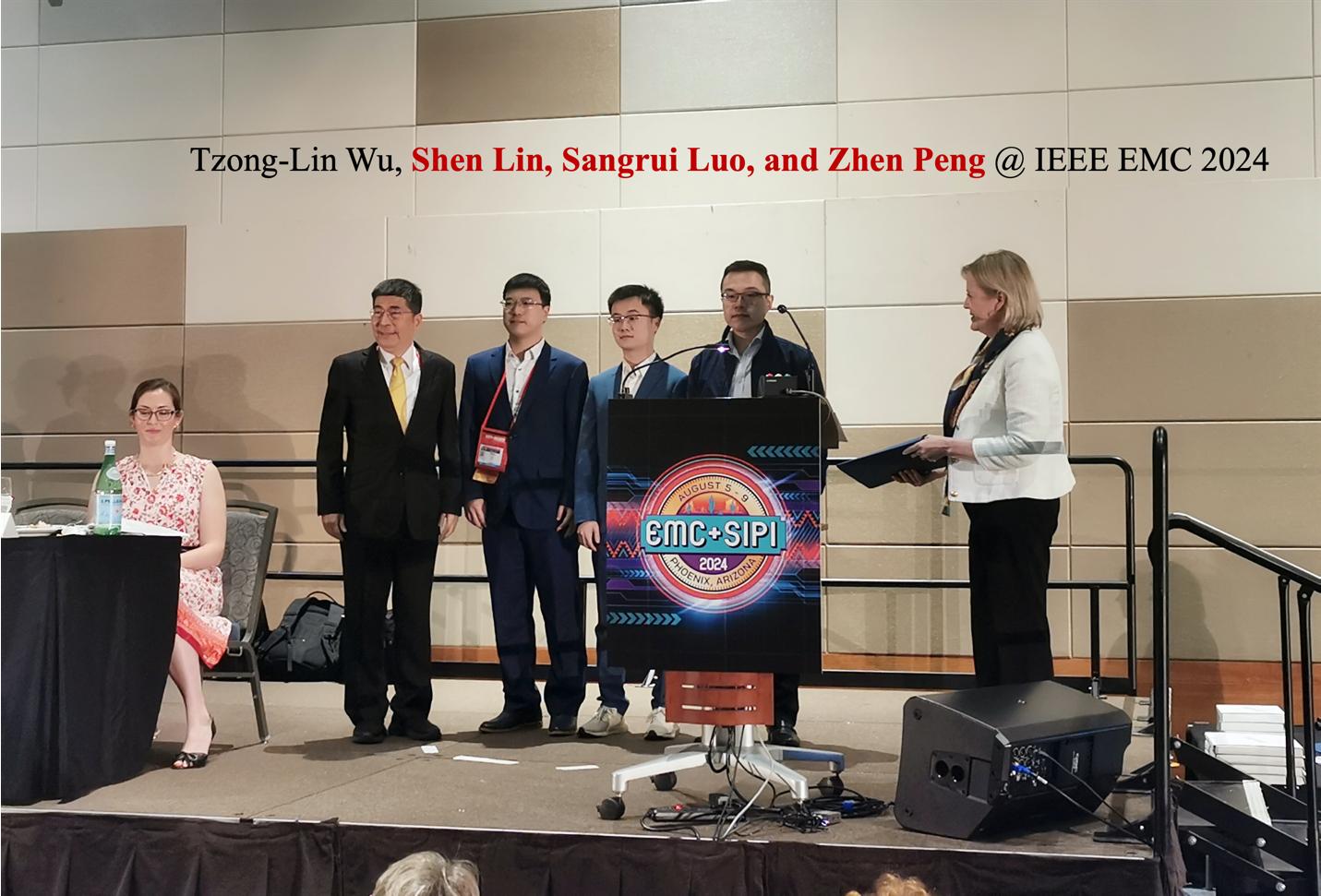
2024, Student Fellowships and Awards
Four members of our group had the pleasure to receive fellowships and awards for their outstanding research. On the left, Incheol (Aiden) Jung received the James M. Henderson Fellowship. In the center, Gonzalo Núñez Muñoz received the A.R. “Buck” Knight Fellowship. On the right, Qi Jian Lim received the Raj Mittra Outstanding Research Award. Ge Cao (not in image) also won the Promise of Excellence Fellowship. Congratulations to all of them!

2024, IEEE AP-S Distinguished Lecturer
Prof. Zhen Peng is honored to serve as an IEEE Antennas and Propagation (AP-S) Society Distinguished Lecturer for 2024-2026. The IEEE AP-S Distinguished Lecturer Program (DLP) provides experts, the Distinguished Lecturers (DLs), who are financially supported to visit active AP-S Chapters around the world and give lectures on topics of interest and importance to the antennas and propagation community.
Titles of talks are: (1) Physics-oriented Statistical Wave Analysis Integrating Order and Chaos, (2) Domain Decomposition Methodology for Solving Maxwell’s Equations at Scale, (3) Empowering Smart Radio Environments with Quantum Computing and Optimization.
2023, Experimental Demo at Brooklyn 6G Summit
Our group conducted a live experimental demo at the Brooklyn 6G Summit. In this demo, we presented a hybrid classical-quantum computing framework for solving the joint channel estimation and optimization problem for RIS-assisted wireless communications. Our demonstration included transmitter and receiver antennas with no line-of-sight link while using an RIS to create a virtual line-of-sight link. The antennas are connected to USRP N210 Software Defined Radio (SDR). An interactive interface is provided to plot in real time the configuration of the RIS, channel gain, received constellation, and decoded message data.
The work is in collaboration with Amitava Ghosh and Frederick Vook in the Radio Interface Group at Nokia Standards, Gabriele Gradoni at the University of Surrey, and GreenerWave.
2023, Best Student Paper Award (2nd prize) at NEMO’2023
Charles Ross received the Best Student Paper Award (2nd prize) at the IEEE MTT-S International Conference on Numerical Electromagnetic and Multiphysics Modeling and Optimization (NEMO). The title of the paper is “A Hybrid Classical-Quantum Computing Framework for RIS-assisted Wireless Network”.
In this paper, we proposed and experimentally validated a quantum-assisted computing framework that allows for ultra-fast optimization of RIS-assisted smart radio environment. By leveraging the computing power of quantum adiabatic evolution and mathematics of tensor contraction, the onsite optimization of RIS configuration can be performed rapidly using only feedback (received power) at wireless endpoints. The outcomes enable the possibility of ultrafast joint channel estimation - optimization in dynamic wireless environments.
2023, Dr. Eric K. Walton Graduate Award at ECE Illinois
Charles Ross has been chosen as the recipient of the 2022-2023 Dr. Eric K. Walton Graduate Award. This award is presented to a graduate student in the Department of Electrical and Computer Engineering who has demonstrated excellence in research in the area of antennae design, radar studies, or radio waves.
2023, Young Scientist Award at the URSI GASS 2023
Dr. Shen Lin received a Young Scientist Award at the XXXVth URSI General Assembly and Scientific Symposium (URSI GASS 2023). The Young Scientist Awards recognize an international group of individuals making innovative contributions and discoveries in multidiscipline research related to electromagnetic fields and waves.
2023, Best Student Paper Award (Honorable mention) at URSI GASS 2023
Qi Jian Lim received a Best Student Paper Honorable Mention Award at URSI GASS 2023. The title of the paper is “Heuristic Quantum Optimization for Engineering Reconfigurable Intelligent Surfaces in Smart Radio Environments”. In this paper, we demonstrate the scaling advantage of a hybrid classical-quantum optimization algorithm compared to state-of-the-art classical optimizer.
2023, IEEE Antennas and Propagation Society (AP-S) Fellowship
Congratulations to Shen Lin for being selected for the IEEE Antennas and Propagation Society (AP-S) Fellowship
2023, Best Paper Award Finalist at IEEE EMC Symposium
Our paper, “Statistical Characterization of Cavity Quality Factor via the Stochastic Green’s Function Approach” entered into the 2023 Best EMC Symposium Paper Finalist in the 2023 IEEE International Symposium on Electromagnetic Compatibility, Signal & Power Integrity.
2023, Honorable Mention Award in Student Paper Competition at IEEE AP-S Symposium
Qi Jian Lim received the 2023 IEEE Antennas and Propagation Symposium Student Paper Competition Honorable Mention Award. The title of the paper is “Full-Wave Simulation of a 10,000-element Reconfigurable Intelligent Surface with a Single Workstation Computer”.
2023, Honorable Mention Award in Student Paper Competition at IEEE AP-S Symposium
Sangrui Luo received the 2023 IEEE Antennas and Propagation Symposium Student Paper Competition Honorable Mention Award. The title of the paper is “A Hybrid Predictive Model for the Spatial-Spectral Analysis of Wave Physics in Complex Enclosures”.
2023, TICRA-EurAAP Grant Awardee at EuCAP 2023
Congratulations to Qi Jian Lim for being selected as one of the eight awardees of the TICRA-EurAAP Grants at 17th European Conference on Antennas and Propagation.
2022, Best Electromagnetics Paper Award at 16th European Conference on Antennas and Propagation
Our Paper “Quantum-Assisted Combinatorial Optimization of Reconfigurable Intelligent Surfaces” (Qi Jian Lim, Charles Ross, Gabriele Gradoni, and Zhen Peng) received the Best Electromagnetics Paper Award at the 16th European Conference on Antennas and Propagation (EuCAP2022).
We proposed a physics-based optimization approach for reconfigurable intelligent surfaces, inspired by the quantum mechanical physics of correlated spins. The new idea is grounded on the isomorphism between the electromagnetic scattered power and Ising Hamiltonian. Thereby, the problem of optimizing phase configuration is converted into finding the ground state of the target Ising Hamiltonian. Under this framework, we successfully demonstrated the feasibility of combinatorial optimization for weighted beamforming and diffusive scattering applications.
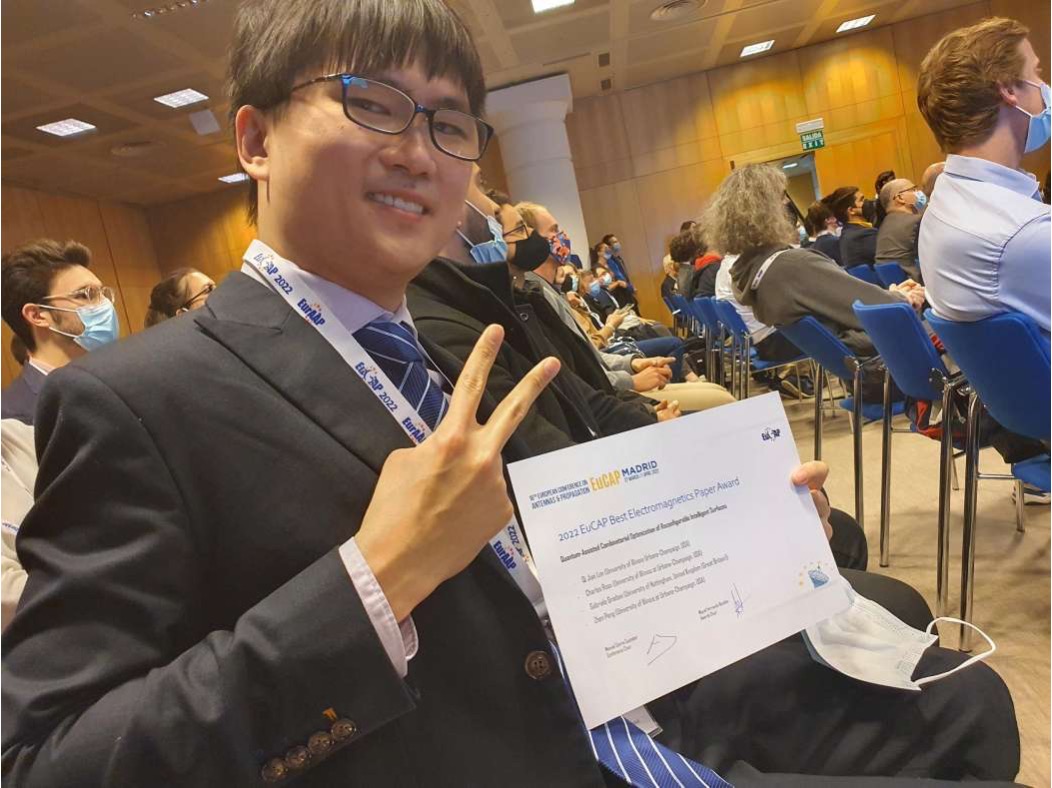
2022, Best Paper Award Finalist at IEEE EMC Symposium
Our paper, “On the Vectorial Property of Stochastic Dyadic Green’s Function in Complex Electronic Enclosures” entered into the 2022 Best EMC Symposium Paper Finalist in the 2022 IEEE International Symposium on Electromagnetic Compatibility, Signal & Power Integrity.
2022, Yuen T. Lo Outstanding Research Award
Shen Lin received the Yuen T. Lo Outstanding Research Award in the Department of Electrical & Computer Engineering (ECE) at the University of Illinois at Urbana-Champaign (UIUC). Congratulations to Shen!
2021, Best Conference Paper Award at 30th Electrical Performance of Electronic Packaging and System
Our Paper “On the Statistical Analysis of Space-Time Wave Physics in Complex Enclosures” (Shen Lin and Zhen Peng) received the Best Paper Award at 30th Electrical Performance of Electronic Packaging and System (EPEPS2021).
We proposed a physics-oriented, mathematically tractable statistical wave model, named the space-time stochastic Green’s function, for analyzing the wave physics of high-frequency reverberation within complex confined electromagnetic environments. The model characterizes both spatial and temporal variations and correlations of wave fields without the need for detailed knowledge of the complex environment. Experimental results are supplied to validate the proposed work.
2021, Honorable Mention Award and Final list in Student Paper Competition at IEEE AP-S Symposium
Shen Lin received the 2021 IEEE Antennas and Propagation Symposium Student Paper Competition Honorable Mention Award. The title of the paper is “A Space-Time Stochastic Green’s Function Method for Statistical Analysis of Wave Physics in Ray-Chaotic Enclosures”.
2020, 3rd Place Winner in Student Paper Competition at IEEE AP-S Symposium
Our Paper “Statistical Analysis of Information Transmission in Ray-Chaotic Enclosures: A Stochastic Green’s Function Approach” (Shen Lin and Zhen Peng) won the 3rd place in Student Paper Competition (SPC) at 2020 IEEE International Symposium on Antennas and Propagation and North American Radio Science Meeting (2020 IEEE AP-S). A total of 203 student papers entered into the SPC this year.
There has been much interest in studying the physics of wireless channels in strongly scattering, indoor environments displaying ray chaotic dynamics. This paper presents a physics-based mathematical model, so-called stochastic Green’s function, built upon Wigner’s random matrix theory and Berry random wave hypothesis. The work can be used to characterize the channel capacity, spatial correlation, and coherence bandwidth based on macroscopic knowledge of the propagation environment.
2019, Best Conference Paper Award at 28th Electrical Performance of Electronic Packaging and System
Our Paper “A Novel Space-Time Building Block Methodology for Transient Electromagnetic Analysis” (Shu Wang and Zhen Peng) received the Best Paper Award at 28th Electrical Performance of Electronic Packaging and System (EPEPS2019).
We proposed a space-time building block methodology for efficient time-domain analysis of multi-scale, locally periodic structures. By leveraging the principles of linear superposition and space-time causality in wave physics, the 4D simulation domain is represented by a few space-time building blocks, which are constructed upon 3D spatial unit cell and 1D time unit. The work results in novel time-evolution schemes, which exhibit high-order accuracy and achieve concurrency and parallelism in both spatial and temporal dimensions.
2019, Best Paper Award at IEEE EMC Symposium
Our paper, “A Novel Statistical Model for the Electromagnetic Coupling to Electronics inside Enclosures” has been selected as 2019 Best EMC Symposium Paper Award in the 2019 IEEE International Symposium on Electromagnetic Compatibility, Signal & Power Integrity. It is a joint work with Edl Schamiloglu (UNM), Zachary B. Drikas (NRL), and Thomas Antonsen (UMD).
The work is supported by NSR CAREER Award, and AFOSR/AFRL Center of Excellence: Science of Electronics in Extreme Electromagnetic Environments.
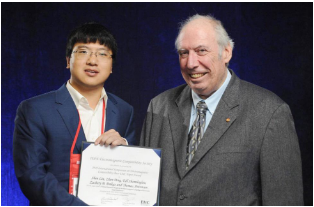
2019, Honorable Mention Award at IEEE AP-S Symposium Student Paper Competition
Shen Lin received the 2019 IEEE Antennas and Propagation Symposium Student Paper Competition Honorable Mention Award. The title of the paper is “Physics-Oriented Statistical Analysis of Information Transmission in Wave-Chaotic Environments”.
2019, 3rd Place in Student Paper Competition at NEMO Conference
Oameed Noakoasteen received the 3rd place in the student paper competition at 2019 IEEE MTT-S International Conference on Numerical Electromagnetic and Multiphysics Modeling and Optimization. The title of the paper is “Physics-Informed deep Neural Networks for Transient Electromagnetic Analysis”. Congratulations to Oameed.
We propose a deep convolutional encoder-recurrent-decoder architecture to predict the time-evolution in transient electromagnetics. Based on the principles of linear superposition and space-time causality, the network is able to superimpose the learned scattering mechanisms (wave reflection, diffraction, and creeping wave, etc.) locally and emulate the transient electromagnetic problems. It is a joint work with Mr. Shu Wang.
2019, 1st Place in Student Paper Competition at ACES Symposium
Shu Wang received the 1st place in the student paper competition at 2019 International Applied Computational Electromagnetics Society (ACES) Symposium. The title of the paper is “Platform-aware In-situ Antenna and Metamaterial Analysis and Design”. Congratulations to Shu!
The objective of this paper is to build a reconfigurable, reusable, and parallel model reduction platform towards transformative in-situ antenna design. The key idea is to introduce a separable and compressible platform Green’s function in an up-front offline computation. Once obtained, the online computational complexity does not depend on the size of the in-situ platform. As a result, in-situ design and optimization of multi-antenna systems can be performed at the same cost as the free-space radiation. The advancements make high-fidelity in-situ antenna design orders of magnitude faster. It is a joint work with Dr. Brian MacKie-Mason and Dr. Hongwei Gao.
2019 ACES Symposium Short Course
Ever-increasing fidelity and accuracy needs for advanced electromagnetic (EM) applications have been pushing the problem sizes toward extreme scales. It puts a high premium on the investigation of high-performance algorithms with optimal computational complexity. In recent years, domain decomposition (DD) methods have enjoyed considerable success in solving large multi-scale EM problems. These methods feature divide-and-conquer in solution algorithms (applying the most suitable solution strategy to solve each sub-problem) and plug-in-play in software architectures (integrating individual EM solvers into a portable and extensible solution suite). They also result in highly efficient and naturally parallelizable algorithms on distributed memory many-core parallel computing systems.
This short course will review and discuss recent progress in the DD methods for solving differential and integral equations with applications to large-scale EM problems.
